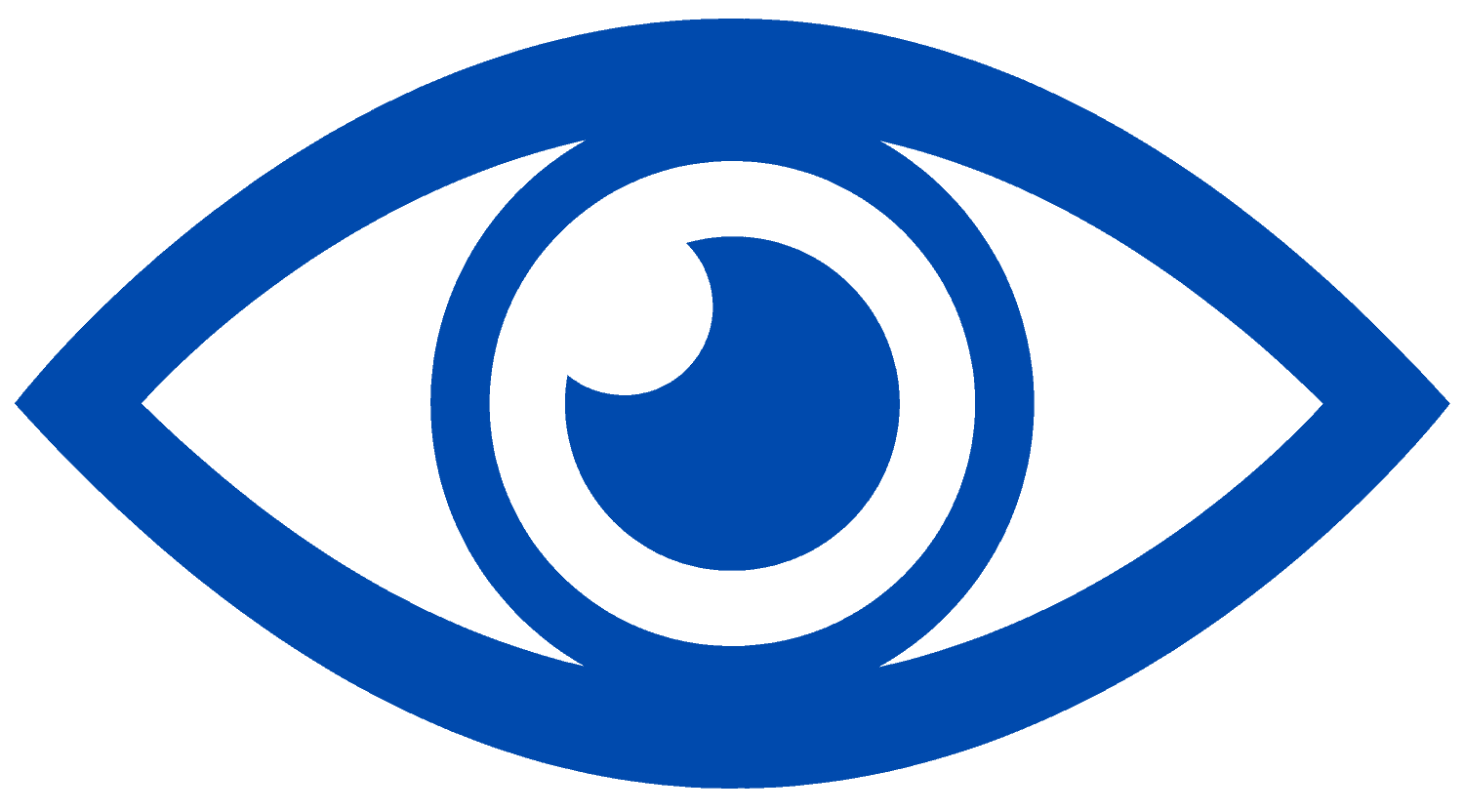Glaucoma Specialist
All the support you need for your eye care, from a Glaucoma specialist
There are a variety of procedures we can perform to slow the progression of glaucoma and prevent further damage or loss of vision. Dr Geoffrey Ryan is a glaucoma specialist and has the expertise to support you through highly complex procedures, test for glaucoma, and talk you through the different glaucoma treatment options, if you are diagnosed with glaucoma.


Are you struggling with Glaucoma?
Glaucoma is often labelled a silent disease — particularly in its early stages. There are no symptoms, and often, it is diagnosed by your optometrist after they’ve detected elevated pressure in your eye or changes to the optic nerve during an examination of the back of your eyes and tests for glaucoma. Typically, the condition has advanced by the time symptoms appear. We know this can be a bit scary.
Dr Ryan is a Glaucoma specialist with advanced training
During his training, Dr Ryan took a particular interest in glaucoma and took on advanced training in the medical, laser, and surgical management of this disease. He’s become a glaucoma specialist, through international training and advanced studies in this area.
No matter the severity of the disease, Dr Ryan provides a full spectrum of glaucoma treatment and management, from routine monitoring and tests for glaucoma, to complex surgical intervention.

We use world-leading equipment
Consulting and operating out of the Queensland Eye Institute, we’re fortunate to have the best of the best in terms of medical tools and equipment. We have state of the art facilities, supporting both us and you, the patients in your diagnosis and treatment journey.
Glaucoma Treatments Offered by Dr Ryan
Selective Laser Trabeculoplasty (SLT) — Laser treatment for glaucoma
A glaucoma treatment that consists of light energy being applied to the natural drainage pathway in the eye. This laser treatment for eyes affected by glaucoma is performed in the clinic, is pain-free and only takes a few minutes. It's an excellent option as a first-line glaucoma treatment. Dr Ryan, as a glaucoma specialist, is experienced in laser treatment for glaucoma.
Minimally Invasive Glaucoma Surgery (MIGS)
Minimally Invasive Glaucoma Surgery is the new generation of glaucoma treatments including glaucoma stents. This is now the standard of care for any glaucoma patient having cataract surgery and is a welcomed alternative to previously invasive treatments.
Filtration Surgery (Trabeculectomy & Glaucoma Tube Procedures)
Filtration surgery is a term for a number of advanced glaucoma treatments, including Trabeculectomy and Glaucoma Tube Procedures.
Why trust Dr Geoffrey Ryan
Dr Ryan is a Glaucoma specialist
Dr Ryan is a glaucoma specialist, having taken on advanced training at Moorfields Hospital in London. Moorfields Hospital is the global leader in glaucoma research. Dr Ryan is highly experienced and qualified in testing for glaucoma, glaucoma treatment options, specialist surgery for glaucoma and providing advice around glaucoma.
We take on the complex procedures
Dr Ryan has spent years taking on additional training and research and is highly regarded for more complex glaucoma procedures. These extend to include trabeculectomy and tube surgery.
A wide array of treatments available
As a glaucoma specialist, Dr Ryan offers a wide array of treatments, including laser and minimally invasive glaucoma procedures. These treatments can reduce the need for long-term eye drops.
We’re actively advancing Glaucoma research
Research is essential to progress what we know about glaucoma and its treatments. Dr Ryan is actively involved in glaucoma research. He wants to ensure hi patients are always offered the latest in glaucoma treatment options.
You’ll understand your procedure
Dr Ryan will always take the time to explain your procedure to you, in full, ahead of your operation. You’ll have the opportunity to ask questions and walk away confidently.
When was your last eye test? Early detection is crucial
Early detection and treatment of glaucoma are critical for preserving vision and preventing blindness.
This is because glaucoma often has no symptoms in its early stages, and it is hard to detect glaucoma without testing for glaucoma being performed by an eye specialist. For this reason, glaucoma is often referred to as the silent thief, which left untreated can result in blindness.
This makes regular eye exams crucial for catching the disease before irreversible damage occurs.
With early intervention, glaucoma can be effectively managed and vision loss can be minimised, allowing patients to maintain their independence and quality of life.


Early intervention is key to preventing further vision loss
Glaucoma is a chronic and progressive eye disease that can lead to irreversible vision loss if left untreated.
This is because the damage to your optic nerve caused by glaucoma is permanent and cannot be reversed. While treatment can slow or stop the progression of the disease, any vision loss that has already occurred cannot be restored. This is why early detection and early treatment are so important in managing glaucoma and preserving vision. Addressing and managing your glaucoma with treatment or glaucoma surgery options can prevent optic nerve damage by relieving eye pressure.
Book an appointment with a glaucoma treatment specialist today
Don’t let glaucoma steal your sight. Book an appointment with our glaucoma surgery specialists, and take action to prevent optic nerve damage and further damage to your vision.
Our experienced team uses cutting-edge techniques to effectively manage and treat glaucoma, helping to prevent vision loss, preserve your vision and improve your quality of life.
Don’t wait until it’s too late. Whether you have a confirmed case of glaucoma, or are experiencing some of the symptoms of glaucoma, such as pressure behind your eyes, blurred vision or other signs of poor eye health.
Book your appointment now and take the first step towards protecting your vision for years to come.
Our Glaucoma FAQs
There are several different types of glaucoma, including: Primary Open-Angle Glaucoma, Angle-Closure Glaucoma, Normal-Tension Glaucoma, Congenital Glaucoma, Secondary Glaucoma, Pigmentary Glaucoma, and Pseudoexfoliative Glaucoma.
- Primary Open Angle Glaucoma: the most common type of glaucoma, caused by a blockage of the eye’s drainage system, leading to an increase in intraocular pressure.
- Angle Closure Glaucoma: also known as narrow angle glaucoma, or closed angle glaucoma, this type of glaucoma occurs when the angle between the iris and cornea is narrow, causing a sudden increase in intraocular pressure.
- Normal Tension Glaucoma: the optic nerve is damaged despite normal intraocular pressure levels.
- Congenital Glaucoma: a rare type of glaucoma present at birth, caused by developmental abnormalities in the eye’s drainage system.
- Secondary Glaucoma: caused by an underlying condition, such as inflammation or injury to the eye, use of certain medications, or other eye diseases.
- Pigmentary Glaucoma: pigment granules from the iris clog the drainage system, causing an increase in intraocular pressure.
- Pseudoexfoliative Glaucoma: a flaky, whitish material deposits on the drainage system and causes blockages.
It’s not known exactly what causes POAG glaucoma. However, there are several risk factors that have been identified including:
- High intra-ocular pressure. This is a risk factor we can modify and it’s often the target of treatment. It’s well known that reducing the pressure inside the eye slows down the progression of the disease.
- Family History. Anyone with a direct family member suffering from glaucoma should be reviewed by their local optometrist.
Other risk factors include:
- Older Age
- African-Caribbean Descent
- Short-sighted (Myopia)
- Prior steroid treatment (eye drops, creams, inhalers and tablets).
Glaucoma is often asymptomatic and patients typically only develop symptoms in the advanced stages of the disease. This is likely to include peripheral visual field loss. This is why screening for early signs of glaucoma is so important.
The two main treatment options are laser peripheral iridotomy and cataract extraction surgery. Dr Ryan will most likely need to reduce the pressure in your eyes via drops and tablets before proceeding with either intervention.
While there are laser treatment options for glaucoma, LASIK eye surgery is not one of them. In fact, LASIK eye surgery is not compatible with patients with glaucoma, until the glaucoma has been addressed and stopped. LASIK eye surgery is quite different to laser treatment for eyes with glaucoma.
LASIK is a refractive surgery that corrects vision problems, but it is not a viable treatment option for glaucoma. Glaucoma is a group of eye diseases that damage the optic nerve, usually caused by an increase in intraocular pressure. Treatment for glaucoma typically involves lowering intraocular pressure through various means, such as eye drops, oral medications, laser therapy, or surgery. LASIK surgery does not address the underlying cause of glaucoma, which is the damage to the optic nerve, and it does not lower intraocular pressure or stop glaucoma. It is advised that glaucoma is fully treated, before LASIK surgery is considered.
Glaucoma Blog Posts
Understanding Narrow Angles and Acute Angle Closure Glaucoma: Risks, Treatments, and Cataract Surgery’s Role
Exploring Alternatives to Eye Drops in Glaucoma Treatment: The Rise of Selective Laser Trabeculoplasty and Minimally Invasive Surgery
A higher standard of care for eye conditions.
Book your appointment below or call our eye centre to schedule your consultation. Our friendly team is happy to answer any questions you may have.
Or call us on (07) 3239 5000



